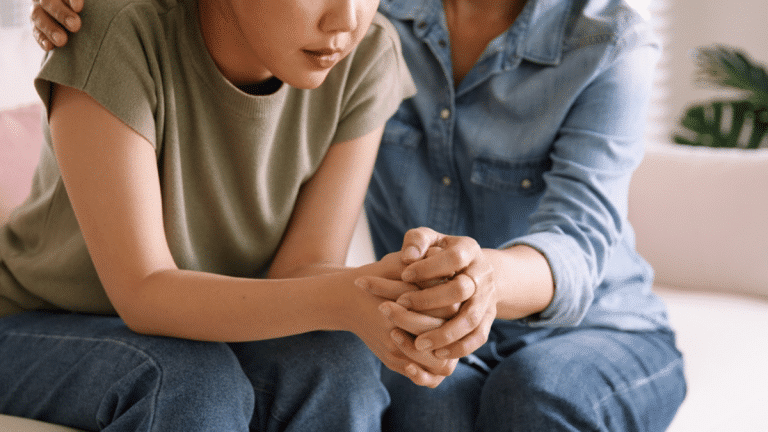Depression can feel like living under a heavy blanket—one you can’t quite throw off. For me, it wasn’t just sadness. It was exhaustion, lack of motivation, and a sense of disconnection from everything I used to enjoy. Even the smallest tasks felt overwhelming, and some days I could barely muster the energy to get out of bed.
Living in a fast-paced city like London only made it harder. The noise, the pressure, the feeling that everyone else was moving forward while I was stuck—it all compounded the weight I was already carrying.
I’d tried different approaches to help myself: exercise, journaling, medication, talking therapies. They all played a role, but there was still something missing. I didn’t just want to talk about how I felt—I wanted my body to feel different too.
That’s when I tried massage.
I booked my first session on a whim, telling myself it was just for the muscle tension in my neck and back. But something unexpected happened during that hour. As the therapist’s hands worked slowly and steadily over my shoulders, my breathing began to slow. I realised how long I’d been holding my body in a constant state of tension, almost bracing against life.
For that short time, I wasn’t consumed by the noise in my head. My body felt heavier against the table, my mind quieter. I didn’t have to do anything—just receive.
Afterwards, I noticed a subtle shift. I didn’t feel “cured,” but I felt lighter, as if someone had given me a small piece of myself back. That night, I slept more deeply than I had in weeks.
I learned later that massage can stimulate the release of serotonin and dopamine—two of the brain’s “feel-good” chemicals that are often low in people experiencing depression. It also lowers cortisol, the stress hormone that can amplify feelings of anxiety and hopelessness.
The benefits built over time. With regular sessions, my body started to feel more relaxed day-to-day. I had fewer tension headaches, less back pain, and—most importantly—a bit more emotional resilience. Massage became my way of reconnecting with my body in a kind, non-judgmental way.
There’s something deeply healing about safe, caring touch. Depression can make you feel isolated, even disconnected from your own body. Massage reminded me that I was still here—that I could still feel comfort, even joy, through physical sensation.
I still have ups and downs, and I know massage isn’t a magic fix. But it’s one of the tools I use to support my mental health, alongside therapy, good sleep, and movement. It gives me a reset button when the weight of depression starts to press too hard.
If you’re feeling stuck in that heavy place, consider giving massage a try. It might not take away all the pain, but it can help create moments of lightness—and sometimes, that’s exactly what you need to keep going.

